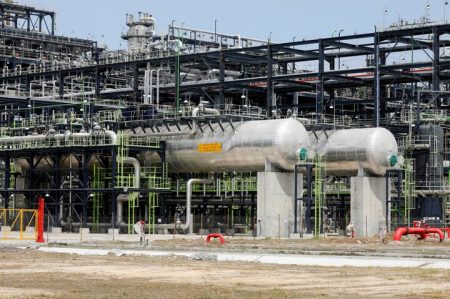
Oscarline Onwuemenyi
05 November 2016, Sweetcrude, Abuja — The Nigerian defence community has been advised to adopt the Local Content Policy in their operations, particularly in the manufacturing and maintenance of security equipment and development of software.
The Executive Secretary, Nigerian Content Development and Monitoring Board, (NCDMB), Engr. Simbi Wabote gave the advice on Wednesday in Abuja when he delivered a lecture to participants of the Nigerian Defence College, Course 25.
Speaking on the topic, Local Content Policies and National Security: An Assessment of the Oil & Gas Sector, Wabote charged military authorities to also consider adopting Local Content in the production of security clothing, construction of security vessels and include the policy in other security contracts, especially in offshore locations and maritime facilities.
The Executive Secretary pledged the support of the Board to the Defence Community in developing a unique local content policy that would fit its operations.
According to him, the implementation of Nigerian Content in the oil and gas industry has yielded enormous achievements, including employment generation for thousands of Nigerians, skills acquisition, local manufacturing and asset ownership and prompted sectors like power, telecommunications, and construction to adopt the policy.
He added that countries such as Ghana, Kenya, Gabon and Oman have also adopted some of the local content models implemented in Nigeria.
Wabote described Nigerian Content as a national security imperative, noting that the Nigerian oil and gas industry must depend on Nigerian owned assets and personnel to avoid a scenario where the sector is forced to shut down because foreign owned assets or expatriates have to be withdrawn due to insecurity in the Gulf of Guinea Region, diplomatic tensions or outbreak of an epidemic in the country.
He stated that spend on procurement of manufactured goods gulp over 50 per cent of contracts budgets, much more than other elements like fabrication, construction and engineering. That he said, informed the emphasis of Nigerian Content implementation on in-country manufacturing and domiciliation of industry activities because of their capacity to create employment, retain spend in the economy and contribute to national industrialization.
He further explained that NCDMB is implementing the Nigerian Content Act using a four pronged approach that focussed on Manufacturing and Infrastructure, Human Capital and Technology, Supplier Development and Funding and Asset Ownership.
The Executive Secretary expressed satisfaction that the Board’s participation at the Defence College event in 2015 resulted in the partnership the military has forged with Oildata Wireline Services – an indigenous service company.
The two parties collaborated in the deployment of fiber optic technology for pipeline monitoring and protection between Ugheli and Kwale, Delta State in 2015 and set up of Oilfield shaped charge manufacturing facility in Nigeria in partnership with the Defence Industry Corporation of Nigeria (DICON).
Responding to questions from the participants, Wabote explained that the Board was collaborating with the Nigerian Maritime Administration and Safety Agency (NIMASA) to implement the Cabotage Act as it pertains to the oil and gas industry.
He noted that the number of Nigerian vessel owners in the oil and gas industry have increased to about 60 per cent of the total operators – a marked improvement on what obtained in 2010 when the Act was enacted.
He also explained that the Board’s Expatriate Quota Policy regulates the participation of expatriates in the Nigerian Oil and Gas industry through the issuance of biometric cards after confirmation that such skills are not available locally. The policy also assists the Board to electronically track their length of stay, compliance with provided succession plans and expected date of exit.
In his comments, the Deputy Commandant and Director of Studies, Nigerian Defence College, Major General EG Ode underscored the need for effective collaboration between the Defence Industry and the oil and gas industry and called for the development of local capacity across the industry value chain.



